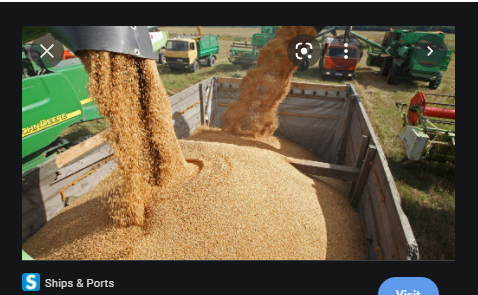By Jeph Ajobaju, Chief Copy Editor
Wheat may soon join the list of items the Central Bank of Nigeria (CBN) restricts for official foreign exchange (forex) because it costs $2 billion in imports yearly which can be saved to jerk up domestic production.
Individuals and companies can still import wheat but they have to source forex outside the official window.
Wheat is the main ingredient for bread and biscuit and other staples which prices may shoot up in the interim, particularly bread that has seen between N100 and N150 price hike this year alone, but the CBN anticipates gains from greater local output.
Wheat is also used to make noodles, pasta, semolina, and beverages like wheat beer and malted milk.
Only 1 per cent or about 63,000 metric tonnes (mt) out of between six and seven million mt of wheat Nigeria consumes per year is produced locally, according the CBN, reported by The Nation.
The CBN plans to trigger massive local production because “any moment from now, wheat will be added to the forex restriction list”, a CBN source told the newspapers.
He explained that the government has imported hybrid wheat seeds for dry season farming as part of efforts to raise output and meet demand.
CBN Director (Development Finance) Philip Yusuf told a wheat conference in Abuja that “wheat is the second highest contributor to the country’s food import bill putting pressure on the country’s foreign reserves”.
Rice, now on the restriction list, is the highest forex guzzler.
“The CBN plans to address key problems in the value chain through financing massive production of wheat in Nigeria and seeks to facilitate sustained availability of high yield seed variety in the country and to improve general productivity.
“There was enormous challenge before the CBN, which would require concerted efforts to address,” Yusuf said.
Potential of wheat value chain
In Yusuf’s view, there is enormous potential in the wheat value chain to make significant impact in agriculture.
“The CBN will focus attention on the wheat value chain for 2021/2022 dry season planting, after sustainable progress made across the rice and maize value chain.”
Other costly imported agricultural items now on CBN forex restriction list are rice, poultry products, and fish.
Kano State Governor Abdullahi Ganduje pleaded with the CBN at the conference to expedite action on releasing funds, stressing that partnership among stakeholders in wheat production is critical for self-sufficiency in wheat production.
Ganduje, represented by his Deputy, Nasiru Gawuna, implored stakeholders to be transparent in their dealings and to commence preparation for both farming and production of wheat.
Agriculture and Rural Development Minister Mohammed Abubakar, represented by Abdullahi Garba, expressed dismay that wheat import bill has been rising in recent years.
He urged stakeholders to team up and reverse it by investing more in the value chain.




